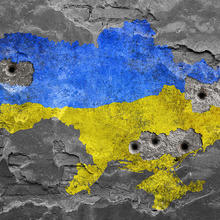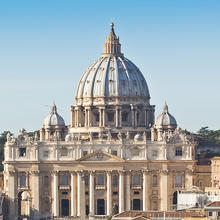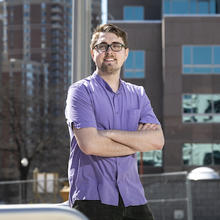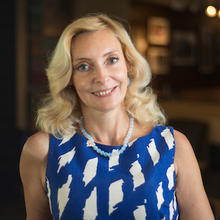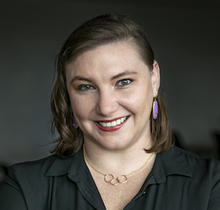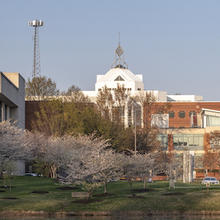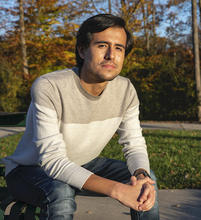- March 13, 2023
On February 24, the one-year anniversary of Russia’s invasion of Ukraine, George Mason University’s Carter School for Peace and Conflict Resolution hosted “One Year After: Ukraine War Analysis and Prospects,” an all-day virtual event to discuss the effects of the war and potential post-war contexts.
The event featured Romantsova Oleksandra, executive director of the Center for Civil Liberties, the first Ukrainian organization to win a Noble Peace Prize. The recognition, which the human rights organization received in 2022, was due in part to their work documenting war crimes against civilians in occupied areas of Ukraine.
- February 20, 2023
It’s been a year since George Mason University’s Carter School for Peace and Conflict Resolution touched base in the war-torn Democratic Republic of the Congo. Their goal? Accompany locals in creating their own sustainable peace—something the country has not experienced in more than 30 years.
Carter School Dean Alpaslan Özerdem, and Charles Davidson, PhD ’19, Carter School research faculty and alumnus, visited the Congo in October 2022 to check in on the “Peacemaking + Initiative,” funded by Milt Lauenstein, and assess the direction for its next phase.
- June 28, 2022
George Mason University Carter School professor Richard Rubenstein attended a workshop conference at the Pontifical Academy for Social Sciences at the Vatican on June 6-7 to discuss peacemaking in Ukraine and other global conflict sites. The conference was organized by the U.N. Development Solutions Network headed by Columbia University professor Jeffrey Sachs.
- May 9, 2022
Despite being more than 5,000 miles away from the war in Ukraine, students at George Mason University’s Carter School for Peace and Conflict Resolution are actively assessing the conflict dynamics, with hopes that their research could improve the situation.
- March 4, 2022
The ongoing war in Ukraine is unique from other conflicts, and the international community can take five actions to control the situation, said Karina Korostelina, professor and director of the Program for the Prevention of Mass Violence at George Mason University’s Carter School for Peace and Conflict Resolution.
Korostelina shared her perspective over Zoom:
- February 9, 2022
As a junior and senior at Annandale High School in Virginia, Emily Sample spent her summers as a docent at the Holocaust Memorial Museum in Washington, D.C. She was a teenager who had just lost a friend to police violence, she said, and joining the museum’s Young Ambassadors Program resonated with her.
“I was fascinated and continue to be fascinated by this highly illogical idea of genocide,” said Sample, a PhD candidate at George Mason University’s Carter School for Peace and Conflict Resolution.
- February 4, 2022
To support Afghan refugees needing to relaunch their careers in the United States, George Mason University is inviting scholars and researchers who have recently left Afghanistan to request an academic appointment as visiting scholars.
- December 14, 2021
The Democratic Republic of the Congo has not seen peace for more than three decades, but in November 2021, George Mason University’s Carter School for Peace and Conflict Resolution helped the country take a leap in a hopeful direction.
In the province of South Kivu, the school gathered representatives from 21 armed groups, the Congolese government, military, police, intelligence services, religious leaders, civil society groups, and peace advocates. Not only did everyone discuss a path toward peacebuilding, but they also signed a peace accord to solidify it.
- December 9, 2021
Arturo Barrera is receiving his bachelor’s in conflict analysis and resolution. He said Mason supported him before he was a freshman.

